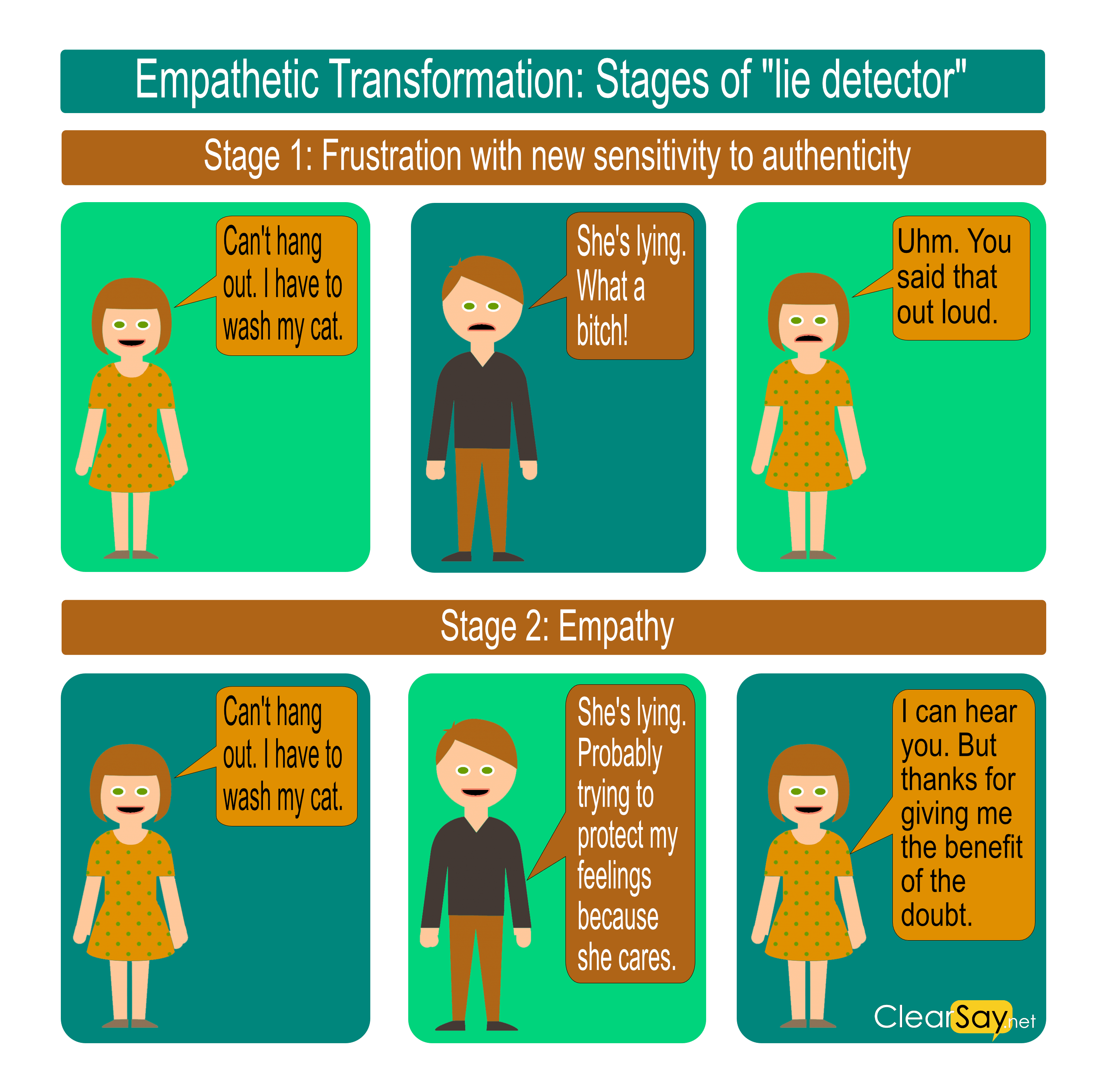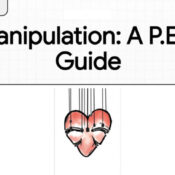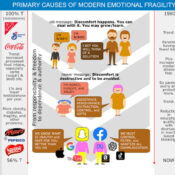After many years of practicing the Practical Empathy (PE) method of empathy, I’ve become much more aware of much more, including when I’m being lied to.
How did this happen?
My hypothesis goes like this:
(a) When we communicate in person, we subconsciously take in and store visual, auditory, and scent data. This includes noting facial expressions; gaze; pupil dilation; respiration depth and rate; voice tone, volume, and cadence; body language; and even pheromone analysis.
(b) Normally, our brains combine that information with the words we hear, as well as what we already know of that person.
(c) What if we get more verbal information than provided in shallow interactions? What is
more? Feelings, needs/values/wants/motives, and the additional sensual data that comes
when a person is asked deeper questions, then it is an extra dimension of data for our brains to combine with the aforementioned sensual information. This increases the probability of detecting anomalies between behavior and the words spoken.
In addition, knowing one person more deeply, those data points – while different for each
person – have some overlap with all humans, meaning not only are we learning more about
the current person we are relating to, but we have also gained increased understanding of all humans to some degree.
The beauty in this method is that we are not consciously exercising analysis or memory. We’re spontaneous in both the learning and the use!
Here’s an example of a couple different ways a casual conversation could go, so you can get an idea of how much more information may be coming in:
Example of “typical” conversation
Question: “How was work today?”
Answer: “It sucked.”
Question: “Oh sorry to hear that. Would you like to forget about it over dinner and a movie?”
Answer: “Sure!”
vs
Example of more empathetic conversation
Question: “How was work today?”
Answer: “It sucked.”
Question: “Oh sorry to hear that. Are you feeling tired and frustrated?”
Answer: “Frustrated yes. Tired, not so much.”
Question: “Ah. Someone at work getting in your way?”
Answer: “Yeah. My boss is trying to micromanage me.”
Question: “Oh! I know how much you value autonomy!”
Answer: “Exactly! Super frustrating to have someone second–guessing me when I know my
job.”
Question: “I bet! It would be nice if they could show you more trust and respect, eh?”
Answer: “Yes! I just need to be patient. Thanks for being such a great listener.”
Question: “Of course! Wanna do dinner and a movie?
Answer: “Sure!”
Notice how much more information about the other person’s world we are getting in the second example above?
Skeptic: Uh but look how long that conversation took. Too many words.
Answer: You get what you pay for.
Warning: not always a fun skill
Here’s the catch: People lie all the time. Especially when so many have been brought up to be “people pleasers.” I’ve been deprogramming myself for many years and there is still a
significant part of me that wants to be liked and wants to protect people from pain, so I
understand. And to tell the truth, though I wasn’t lying before, I don’t know if I want to
deprogram all of the “people pleasing” instinct. Perhaps it is a useful trait we evolved to assist in group cohesion?
So it doesn’t feel so good when you know someone is being dishonest. This is yet another
situation where we can practice self–empathy as well as empathy for the other person, in order to get to a place of understanding and acceptance. That process may look like:
(1) Self–empathy
“I’m feeling some anger and annoyance because I am not getting the trust and respect I want.”
(2) Silent empathy for them
“Perhaps he was worried about my feelings and has a strong value for comfort?”
Or: “Maybe they feared the truth would negatively impact our relationship?”

Silver lining
Overall, however, this has been a useful skill that has come in handy and I would not change it. I’m actually still doing the kind of work that means I’ll get even more accurate with the “lie detection.” What helps is that this same work is strengthening my integrity, understanding, and acceptance, so I’m less likely to take it personal when being lied to.
Finally, as you read the later chapters on romantic relationships, parenting, debate, business, negotiation, and mediation, ask yourself how increased ability to “see through” people to their real motives can benefit you.
Finally, I want to be clear that “lie detection” is merely one example of what you are really
gaining; intuition superpowers!










Recent Comments